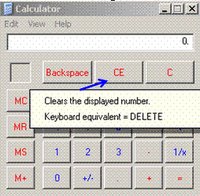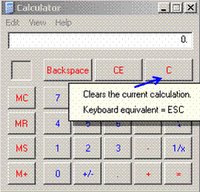I’ve recently noticed the trend of using strikethrough text as a humorous device, as seen in this example from Stephen Bainbridge’s
recent post about blogging during faculty meetings.

What started out as a useful way to update a document while leaving evidence of its original and new form became a device for ironic “correction”. Stephen Baker at Businessweek seems to think this is new, but as with most concepts and dramatic plots, the ancient Greeks came up with it first. It’s called paralipsis, meaning “to leave to one side”. Carolyn Miller once told me it was her favorite rhetorical trope, and I can see why. When used overtly, it can be wry. More often, it’s sneaky (as in, “I won’t be dragged in to discussing my opponent’s drinking problem.”).
But there’s precedence for print-based paralipsis too. The Hacker’s Dictionary describes pre-strikethrough “writing under erasure” thus:
There is also an accepted convention for ‘writing under erasure’; the text>
Be nice to this fool^H^H^H^Hgentleman, he's visiting from corporate HQ.
reads roughly as “Be nice to this fool, er, gentleman...”, with irony emphasized. The digraph ^H is often used as a print representation for a backspace, and was actually very visible on old-style printing terminals. As the text was being composed the characters would be echoed and printed immediately, and when a correction was made the backspace keystrokes would be echoed with the string ‘^H’. Of course, the final composed text would have no trace of the backspace characters (or the original erroneous text). Chapter 5. Hacker Writing Style
I also see similarity to a comedic technique I’ve seen two other places: Kevin Nealon’s SNL character Mr. Subliminal, who would make a statement and quickly interject its (usually politically incorrect) translation, sotto voce. Today, we can see the same effect on Comedy Central’s new Colbert Report in my favorite segment “The Word”, in which the politically incorrect translation appears beside Colbert. [Edit: On re-reading, I think this technique is merely similar to paralipsis... I might have to coin a new trope!]
Mostly, I see print-paralipsis as yet another clever playfulness with language that seems typical of hackers specifically and technophiles more generally. Clever word-play and retoolings of language and use is in their nature.




